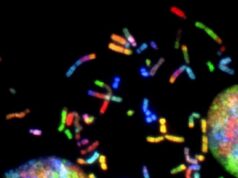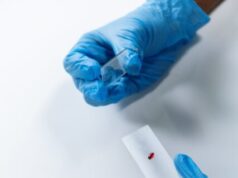A group of researchers from the Andalusian Centre for Molecular Biology and Regenerative Medicine (CABIMER) has revealed the importance of eliminating any excess of defective products that might have accumulated in the mitochondria, as its presence generates mitochondrial instability and information loss on the mitochondrial genome. The study offers new ways to understand the molecular basis of some human diseases that are stem from poor functioning of the mitochondria and, in this way, allow for the development of therapies against these diseases.
The work has been carried out at CABIMER by the doctors Sonia Silva and Lola P. Caminero under the direction of Andrés Aguilera, professor of genetics at the University of Seville and director of CABIMER. Its results have been collected in an article written by the researchers and published in Proceedings of the National Academy of Sciences (PNAS).
Mitochondria are organelles that exist within cells. They breathe oxygen to catabolise sugars and produce energy. They also make proteins essential for DNA metabolism, including replication and repair of the DNA nucleus. Mitochondria have their own genome.
The loss of mitochondrial information and of mitochondria gives rise to defective cell metabolism. As well as the lack of capacity to generate the energy necessary for the cells, the loss of mitochondrial information can generate an increase in oxygen free radicals that attack and damage the genetic material or produce Iron-Sulphur protein deficiencies. All this brings about incorrect cell function and eventually cell death.
The study reveals that Degradasome, a complex of two proteins whose function is to eliminate the defective RNA that is produced in the mitochondria, is essential for maintaining mitochondrial genome integrity. If the Degradasome proteins are inactive, RNA accumulates in the mitochondria and forms abnormal structures, known as DNA-RNA hybrids, that are harmful because when found in excess, they impede mitochondrial DNA replication. The consequence is that as the cells divide, they lose mitochondrial DNA, compromising mitochondrial and cell function.
Find your dream job in the space industry. Check our Space Job Board »
The study offers new ways to understand the molecular basis of some mitochondrial diseases and could help to develop therapies for different human diseases that stem from poor mitochondrial functioning. Although they can occur because of defects in mitochondrial proteins, they are also associated with the loss of mitochondrial genetic material and with the material of mitochondria. In summary, Degradasome, when it eliminates defective RNA, allows for the propagation of healthy mitochondria in the cells, preventing possible mitochondrial diseases.
Provided by:
University of Seville
More information:
Sonia Silva et al. Human mitochondrial degradosome prevents harmful mitochondrial R loops and mitochondrial genome instability. Proceedings of the National Academy of Sciences (2018). DOI: 10.1073/pnas.1807258115
Image:
Credit: CC0 Public Domain











